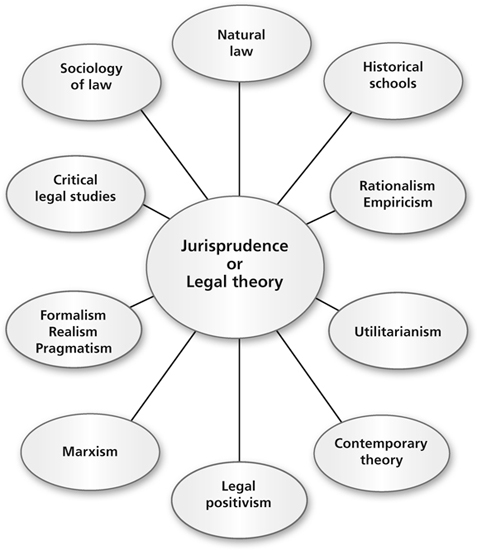Bound by Law Navigating Legal Obligations
3 min read
Bound by Law: Navigating Legal Obligations
Embarking on the journey of legal obligations is akin to navigating a complex terrain where every step is governed by rules and responsibilities. In this exploration, we delve into the world of legal obligations, understanding their nature, significance, and the impact they have on individuals and entities within society.
The Essence of Legal Obligations
At its core, legal obligations encapsulate the duties and responsibilities imposed by law. These duties can arise from statutes, contracts, or common law principles. They form the threads that weave the fabric of societal order, shaping the conduct of individuals, businesses, and institutions.
For those seeking to comprehend the intricacies of legal obligations, resources like Legal obligations offer valuable insights and a comprehensive guide.
Obligations in Contracts: Agreements and Commitments
In the realm of legal obligations, contracts play a pivotal role. When parties enter into agreements, they voluntarily assume certain obligations. These can range from payment obligations in a sales contract to the fulfillment of specific duties outlined in an employment agreement. Understanding and meeting these contractual obligations are essential for maintaining trust and integrity in business relationships.
Statutory Duties: Mandates from the Law
Statutory obligations emanate from laws enacted by legislative bodies. Individuals and organizations are legally bound to comply with these mandates. Whether it’s fulfilling tax obligations, adhering to environmental regulations, or ensuring workplace safety, statutory duties form a crucial aspect of legal obligations, contributing to the overall welfare of society.
Tortious Responsibilities: Wrongs and Redress
Legal obligations also arise from the realm of tort law, where individuals may have a duty to refrain from causing harm to others. For instance, the duty of care in negligence cases imposes an obligation to act reasonably and avoid causing foreseeable harm. Understanding tortious responsibilities is vital in contexts ranging from personal injury claims to professional malpractice.
Professional and Ethical Duties: Beyond the Law
Beyond the strictures of statutes and contracts, professionals often bear additional obligations tied to ethical standards. Lawyers have a duty of confidentiality, doctors uphold patient confidentiality, and financial professionals adhere to codes of conduct. These professional and ethical duties supplement legal obligations, emphasizing the importance of integrity in various fields.
Fiduciary Obligations: Trust and Loyalty
Fiduciary duties represent a category of obligations characterized by trust and loyalty. Individuals in fiduciary roles, such as trustees, directors, or agents, are obligated to prioritize the interests of those they serve. Breaching these obligations can result in legal consequences, underscoring the significance of maintaining trust in fiduciary relationships.
Evolving Obligations in Digital Spaces
In the digital age, legal obligations extend into the virtual realm. Data protection laws impose obligations on entities handling personal information, cybersecurity regulations mandate protective measures, and online platforms may have content moderation obligations. Navigating these evolving digital obligations requires an understanding of the intersection between law and technology.
Compliance and Consequences: The Price of Non-Compliance
The stakes associated with legal obligations are high. Non-compliance can lead to legal consequences, including fines, penalties, and even legal action. Whether in corporate governance, environmental compliance, or contractual relationships, understanding the potential repercussions of failing to meet obligations is crucial for individuals and entities alike.
Remedies for Breach: Seeking Redress
When legal obligations are breached, the affected party may seek redress through legal remedies. This could involve filing a lawsuit, pursuing arbitration, or invoking dispute resolution mechanisms outlined in contracts. Remedies aim to restore the injured party to a position as close as possible to what they would have been had the breach not occurred.
Continuous Monitoring and Adaptation
Legal obligations are not static; they evolve with changes in laws, societal expectations, and business practices. Continuous monitoring and adaptation are essential to ensure ongoing compliance. Individuals and entities must stay informed about legal developments that may impact their obligations and be proactive in adjusting their practices accordingly.
The Balancing Act: Navigating Multiple Obligations
In the complex landscape of legal obligations, individuals and entities often find themselves navigating multiple duties concurrently. Balancing contractual obligations, statutory requirements, and ethical considerations requires a nuanced understanding of the legal landscape. Strategic decision-making is essential to ensure compliance without compromising overall objectives.
Navigating legal obligations is a multifaceted journey that demands vigilance, understanding, and a commitment to integrity. By unraveling the threads of contractual, statutory, and ethical duties, individuals and entities can navigate the intricate web of legal obligations and contribute to a society built on trust, responsibility, and adherence to the rule of law.






